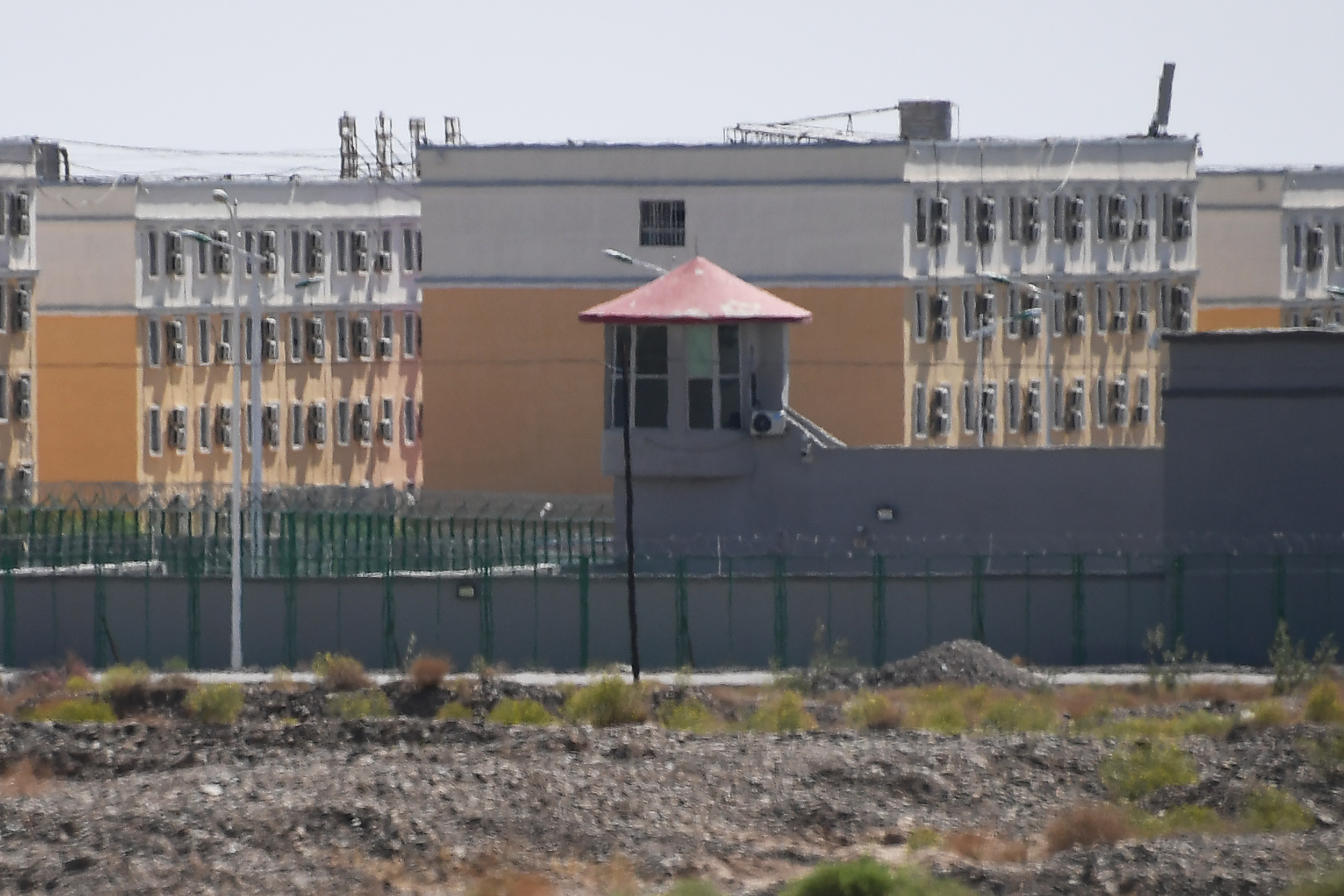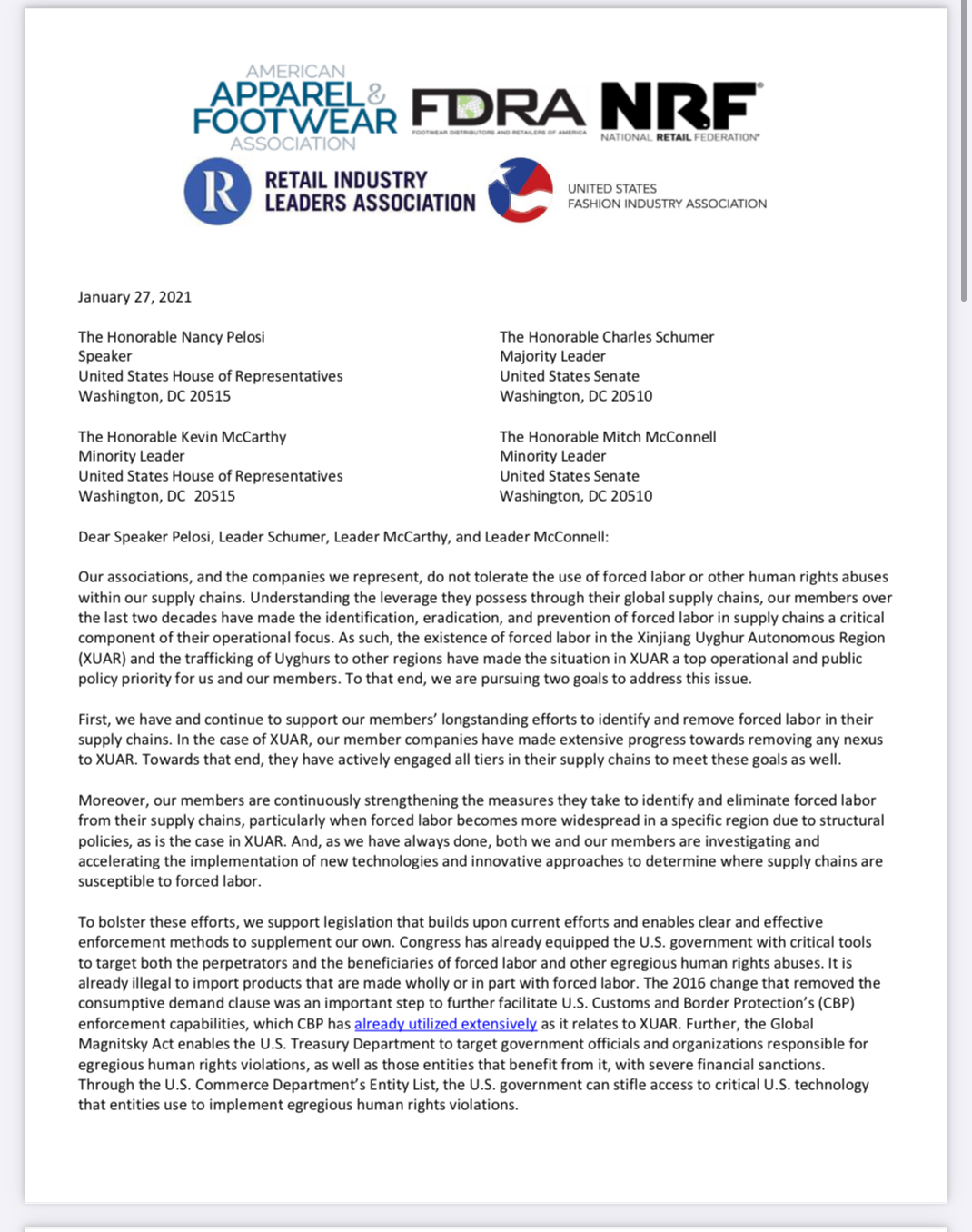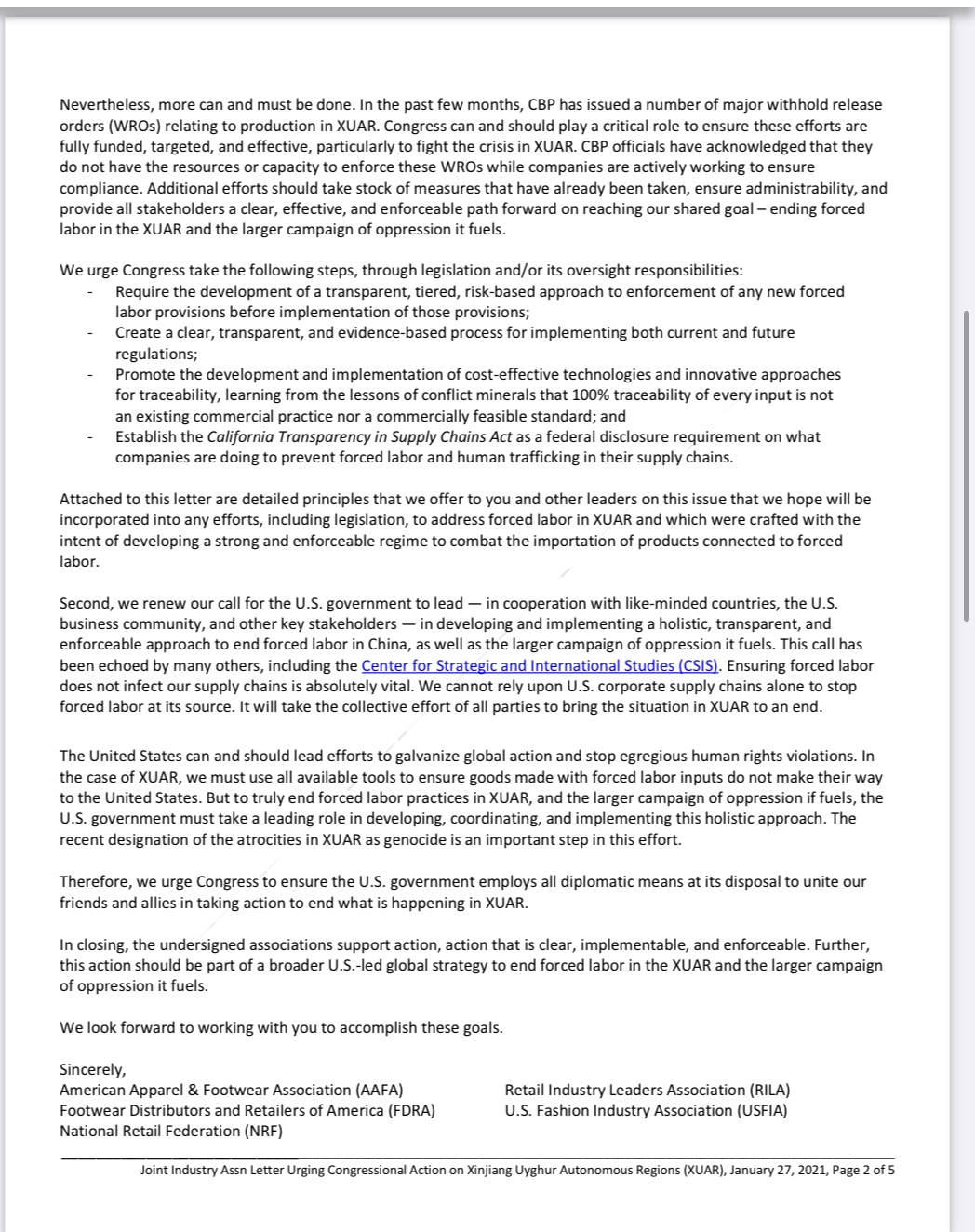Apple, numerous retail organizations, and the U.S. Chamber of Commerce lobbied against a bill that would impose restrictions on imports produced by forced Uyghur labor in China, claiming that the bill would be ineffective in combating human rights abuses, or that other avenues should be taken instead.
Apple paid Fierce Government Relations, a Washington, D.C. firm, $90,000 to lobby the House and Senate on multiple pieces of legislation, including the Uyghur Forced Labor Prevention Act, according to Fierce’s lobbying disclosure filing, the Daily Caller News Foundation reported in April. (RELATED: Apple, Retail Groups Continue Lobbying Congress On Chinese Slave Labor Bill)
Apple, the National Retail Federation, Consumer Technology Association, Retail Industry Leaders Association, American Apparel & Footwear Association and U.S. Chamber of Commerce also lobbied on the Uyghur Act, according to disclosures the trade organizations.
The Uyghur Act, which was introduced by Democratic Rep. James McGovern in March 2020 and passed the House in September, would prevent goods produced in Xinjiang, China from entering the U.S. unless it border officials determine the goods weren’t manufactured by slave labor.

This photo taken on June 2, 2019 shows buildings at the Artux City Vocational Skills Education Training Service Center, believed to be a re-education camp where mostly Muslim ethnic minorities are detained, north of Kashgar in China’s northwestern Xinjiang region. (GREG BAKER/AFP via Getty Images)
The Chinese government is accused of expanding its detention centers in Xinjiang throughout 2020 and detaining Muslim minorities for wearing long beards, refusing alcohol, or showing signs of “religious extremism.” (RELATED: ‘They Think The 21st Century Will Be The Chinese Communist Century:’ Report Shows China’s Crackdown On Religious Freedom)
Detainees of the camps have reported torture, rape, and forced sterilization. Many U.S. lawmakers have referred to the Chinese government’s actions in Xinjiang as “genocide.”
The bill could force companies with significant supply chains in China — such as Apple and numerous fashion brands — to change the way they manufacture their products. Securities issuers would be required to disclose in their regular reports any information related to human rights abuses in Xinjiang.
Apple lobbied against the bill in 2020, and pushed for longer deadlines to reach compliance as well as less disclosure to the public, the Washington Post previously reported. Apple and other retailers, including VF Corporation and JinkoSolar, have recently faced allegations — which they have denied — that they rely on forced Uyghur labor in their supply chains.
The Washington Post reported on Dec. 29 that one of Apple’s suppliers, Lens Technology, relies on forced labor to make glass screens for its iPhones.
Apple did not respond to a request for comment. The company told the Post in their November 2020 report that Apple is “dedicated to ensuring that everyone in our supply chain is treated with dignity and respect.”
“We abhor forced labor and support the goals of the Uyghur Forced Labor Prevention Act. We share the committee’s goal of eradicating forced labor and strengthening U.S. law, and we will continue working with them to achieve that.”
Some of the other organizations that lobbied against the bill decried the human rights abuses in China, but either pointed to efforts that did not significantly involve hindering U.S. corporate supply chains, or said the bill would be ineffective.
The U.S. Chamber of Commerce, in response to a request for comment, sent the Daily Caller a copy of its letter to lawmakers, which condemned the human rights abuses.
“We urge Congress and the Administration to deploy targeted foreign policy tools and to work with the business community to combat these abuses,” the letter said. “However, the Chamber believes that H.R. 6270, the “Uyghur Forced Labor Disclosure Act of 2020,” and H.R. 6210, the “Uyghur Forced Labor Prevention Act,” would prove ineffective and may hinder efforts to prevent human rights abuses.”
The letter goes on to give an example of a past domestic U.S. securities law involving the Democratic Republic of the Congo, and how it ended up worsening “the situation on the ground in that country.”
The National Retail Federation sent the Caller a joint letter also including the Retail Industry Leaders Association and the American Apparel & Footwear Association. The letter does not directly refer to the Uyghur Act, but makes a series of other suggestions to combat forced labor in the supply chain.

Two pages of the joint letter sent to lawmakers.

“We cannot rely upon U.S. corporate supply chains alone to stop forced labor at its source,” the letter said. “It will take the collective effort of all parties to bring the situation in [Xinjiang] to an end.”
Among the suggestions is for Customs and Border Protection to focus enforcement of forced labor statutes on the “worst actors first” in order to provide “some predictability and certainty to impacted stakeholders enabling them to amplify CBP’s enforcement.”
Another suggestion is to make the California Transparency in Supply Chains Act a federal law, which would require certain companies to disclose its efforts to eradicate slavery and human trafficking from its direct supply chain for tangible goods offered for sale.
Consumer Technology Association (CTA) did not respond in time for publication.


